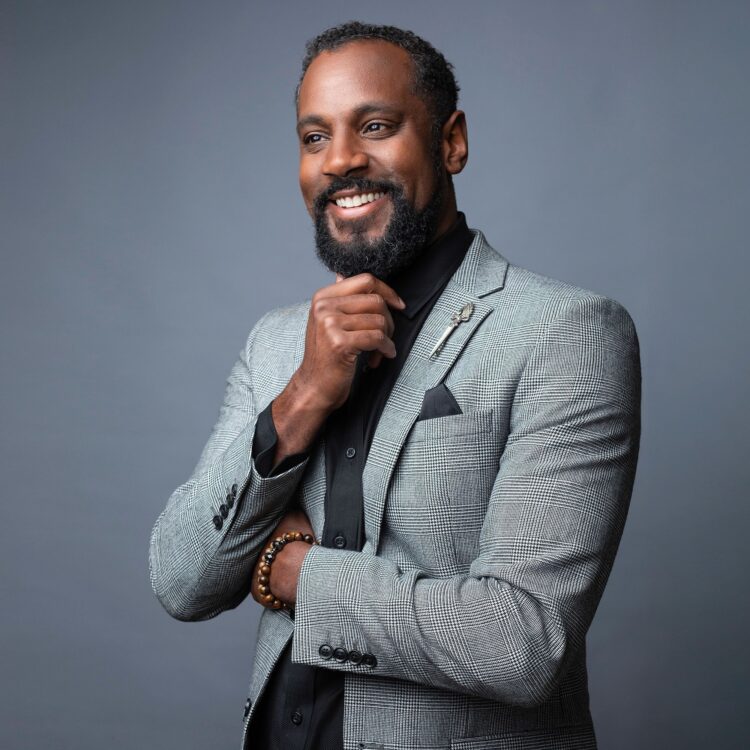Warmth from Other Suns, version for string orchestra
The Boston Symphony Orchestra announced in January 2024 that composer Carlos Simon would be the BSO’s inaugural Composer Chair beginning with the start of the 2024-25 season this fall. The BSO first played Simon’s music during the pandemic-altered 2020-21 season, programming his Fate Now Conquers, a response to Beethoven’s Symphony No. 7, for a videorecorded, streamed performance of spring 2021. Members of the BSO also performed the original string quartet version of Warmth from Other Suns in January 2021. The BSO performed Simon’s Motherboxx Connection at Tanglewood and Symphony Hall in 2022 and commissioned his Four Black American Dances, premiered under Andris Nelsons’ direction in February 2023. Nelsons and the BSO took that piece on tour to several cities in Europe; it has been extraordinarily well received wherever it has been played. The orchestra repeated it for the opening concert of the 2023-24 season. In 2024-25, the BSO and Nelsons will perform a new commissioned work by Simon celebrating Andris Nelsons’ 10th anniversary season as BSO Music Director as well as the composer’s Wake Up! A Concerto for Orchestra.
Much of Carlos Simon’s recent practice has involved deep engagement with Black musical traditions through the lens of contemporary classical concert music. In this, he has taken on the mantle of such early 20th-century composers as William Grant Still and Florence Price, who incorporated Black Spirituals, dance music, and the blues into their own sophisticated musical languages. Fully aware of the continuum of history, he is a musical activist who advocates strongly for musicians of color in the classical sphere. Simon’s own direct musical influences are myriad: the gospel music and hymns of his father’s church, radio-play pop music, the classical canon, and, significantly, film music composers including John Williams. Simon was born in Washington, D.C., but grew up in Atlanta, where his father was a pastor. He began learning piano at his parents’ urging to provide music for services. Black Gospel music was the core of his musical experience as a child, and he soon began to compose his own songs of worship. He learned music initially by ear, a performance- and listening-based practice that has informed his musical life ever since, but he fundamentally approaches music through the lens of composing. “The way I think about things, I’m a composer first.” By high school Simon took for granted he would be a classical pianist and composer. Simon also experimented with the available means of making electronic music and sounds via computer.
Simon attended Georgia State University and Morehouse College, studying piano and composition. He earned his doctorate in music composition from the University of Michigan, where his teachers included Michael Daugherty and Evan Chambers.
As a performer, Simon was music director and keyboardist for Broadway star Jennifer Holliday (including performances with the Boston Pops and Keith Lockhart) and has toured with the singer and hip-hop pioneer Angela Stone. Simon was a Fellow of the Sundance Institute in 2018. In 2020 he became an assistant professor at Georgetown University in Washington, D.C., where his courses include music theory and the study of sound and music for film. He has written works for such organizations as Washington National Opera, the Reno Philharmonic, American Composers Orchestra, the University of Michigan Symphony Band, and many others. He received the Sphinx Medal of Excellence, a prestigious honor from the Sphinx Organization, which nurtures and develops the careers of Black and Latino classical musicians. An excellent introduction to Simon’s holistic approach to music is his multifaceted 2018 concept album My Ancestor’s Gift, which blends his pop, gospel, classical, and experimental experiences into a rich musical narrative. More recently, his Requiem for the Enslaved was released by Decca in July 2022. That powerful piece was commissioned by Georgetown University to acknowledge the institution and its founders’ roles in the slave trade in the U.S.
Along with his new BSO post, Simon is composer in residence of the Kennedy Center in Washington. The breadth of his music interests and experience make him an ideal partner for the BSO—an organization that encompasses not only traditional concert music but also the Boston Pops, the educational activities of Youth Concerts, and the wide-ranging activities of Tanglewood.
The title of Carlos Simon’s string quartet paraphrases the title of cultural historian Isabel Wilkerson’s acclaimed 2010 book The Warmth of Other Suns: The Epic Story of America’s Great Migration. The Great Migration is the name given to the several-decade movement of millions of African Americans leaving the Jim Crow-era rural southern U.S. to settle in primarily urban areas in the North and the West Coast. Wilkerson’s title is itself a quote from Black Boy, the memoir of one of the Great Migration’s most prominent witnesses, the outstanding writer Richard Wright, who moved with his family to Chicago as a young adult after growing up in Mississippi and Tennessee: “I was leaving the South to fling myself into the unknown…. I was taking a part of the South to transplant in alien soil, to see if it could grow differently, if it could drink of new and cool rains, bend in strange winds, respond to the warmth of other suns and, perhaps, to bloom.” In the orchestra version, the three movements “Rays of Light,” “Flight,” and “Settle” create a framework for a more explicit narrative of hope, unrest, and a sense of home.
Composer and writer Robert Kirzinger is the Boston Symphony Orchestra’s Director of Program Publications.


